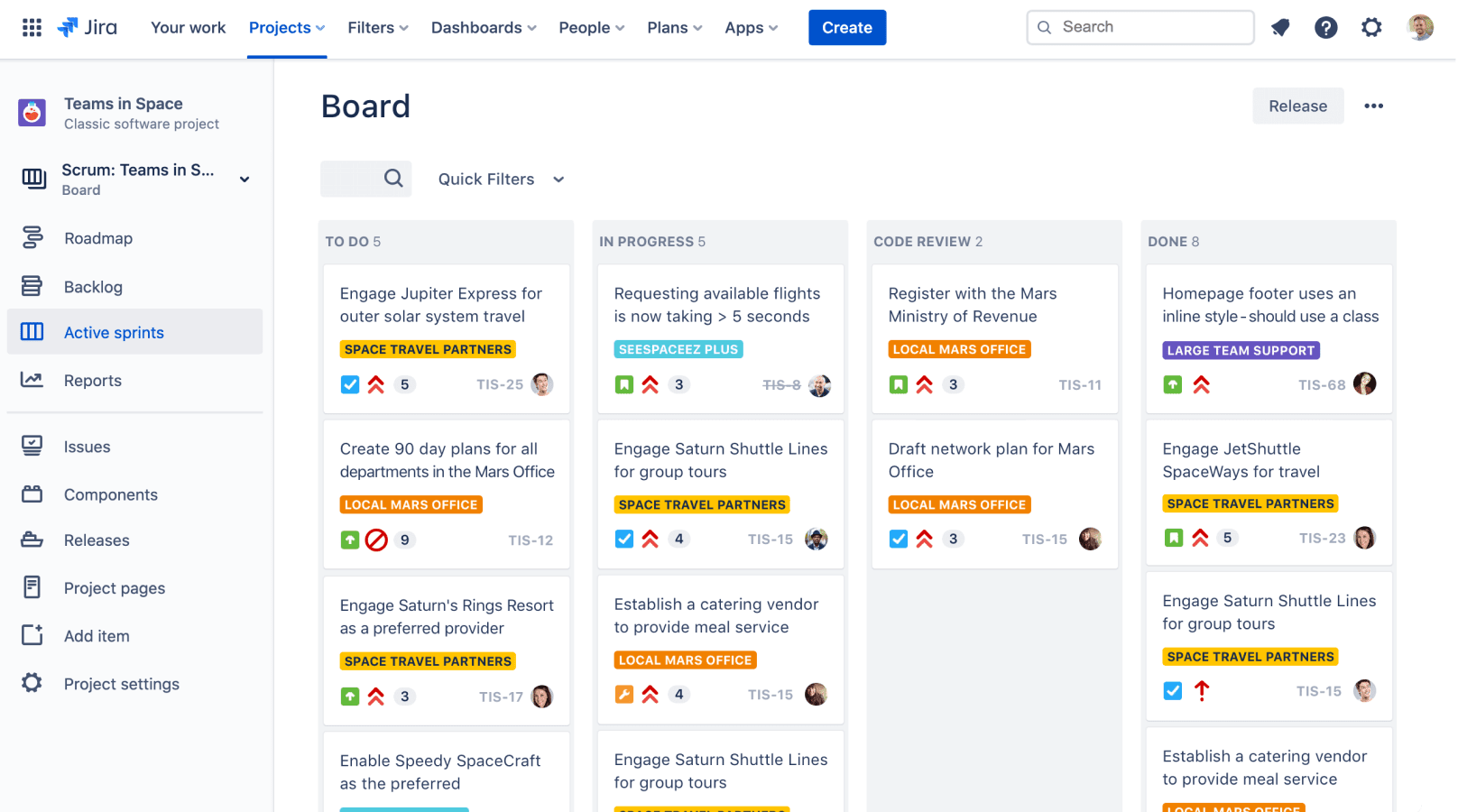Many businesses outsource some or all of their software development to focus on their core expertise. For example, a startup may have a web app and need a companion mobile app, but they don't want to hire full-time software engineers. While there are many development teams that you can use to outsource, it can be a challenge to find the right fit.
Let's look at some essential qualities that you should look for when engaging an outsourced software development team.
The best outsourced software development teams share some common attributes that every business should seek out. Share on XStart with a Plan
The first step in outsourcing software development is determining your motivation for outsourcing and developing a strategy. For example, before looking for a development partner, you might start with a development roadmap that lays out the who, what, when, where, and why of a project, along with the technology stack and other implementation details. Sharkbyte provides a service to have it done for you - or you can take a DIY approach with existing software to build something like a Jira Roadmap.
Next, determine the level of support that you need:
- If you're starting with a brand new product or platform, and your internal team lacks the skills to build it, you might want to outsource development to a third-party firm.
- If you need specific expertise on a small part of a larger project, you might want to consider team augmentation, where a handful of senior developers temporarily join your team.
The final step is setting an appropriate budget. With the development roadmap in hand, it's much easier to ballpark the time and cost of a software project. But ultimately, businesses must balance demands for velocity from stakeholders with the cost of velocity from a development perspective—and add in a buffer for unexpected time and cost.
#1. Flexible
Most startups begin with a problem rather than a well-defined solution. As a result, these startups may undergo a series of changes based on customer feedback before achieving product-market fit. Unfortunately, many development firms look for a complete scope before beginning work, which may be incompatible with modern startup methodologies.
Startups should look for development firms that embrace change from an operational and technical standpoint. For instance, they should welcome changing requirements—even late in the development process—and focus on building and frequently delivering extensible software that minimizes the time to market without sacrificing quality.
#2. Communicative
Communication is critical for the success of any project. When outsourcing software development, business-facing teams must clearly communicate requirements to technical teams. Anything lost in translation eats up the budget, slows down the project, and creates frustrating rework for developers—a lose-lose scenario for both parties.

Atlassian’s Jira is a great way to keep everyone on the same page. Source: Atlassian
Many software businesses rely on the Agile and Scrum frameworks for project management. When hiring a development team, it helps to find those familiar with these methodologies (or the ones you use) to streamline communication. You should also onboard them to your tools (e.g., Slack, Trello, or other apps) to facilitate communication.
#3. Accountable
Many software projects come in over their allocated time and budget. When that happens, it's critical to understand why and address any barriers holding back progress. It's equally essential for development teams to be upfront when they encounter unexpected roadblocks or encounter issues that may lead to a project running over budget.
Clear and consistent communication is the best way to ensure accountability. For example, Scrum incorporates retrospectives into the development process, enabling developers to bring up any roadblocks that they encounter. It's also an opportunity for business-facing teams to voice any concerns over a project's velocity or goals.
#4. Experienced
Software development is becoming increasingly diverse. While JavaScript and HTML built yesterday's websites, modern websites might use hundreds of different languages and frameworks. And, with so many options, it's impossible to be an expert at everything. As a result, most development teams specialize in a handful of technologies.
Software businesses should seek out development teams with experience with their technology stack. For example, you might look for past projects or case studies that resemble your requirements. You might also look for development teams that actively participate in the open-source community using the languages or frameworks you need.
#5. User-Focused
Many development teams will do whatever you tell them with very little feedback. While that may seem like a great quality, businesses tend to have more long-term success hiring development teams that prioritize the customer experience and push back where necessary. That way, you can build something with a superior competitive edge.

Net Promoter Scores (NPS) are a great way to measure customer satisfaction. Source: CustomerThermometer
When hiring a development team, look for teams with a user experience built into their processes. For example, many teams incorporate user research into the onboarding process and then set up feedback channels to fine-tune the user experience. These might include everything from user interviews to user feedback surveys.
Other Tips to Keep in Mind
- Look for industry experience. Many software development firms have niche expertise that can help reduce time and cost, particularly if you’re operating in a highly-regulated or technically-complex industry.
- Start with a small project. Small or test projects are an excellent way to assess a company’s communication skills, trustworthiness, and time management, particularly if they aren’t coming from a trusted referral.
- Set measurable goals. The unpredictability of software development doesn’t mean that you shouldn’t set any goals. Start each project with clear milestones and expectations and then adjust them as needed.
The Bottom Line
Outsourcing software development is a challenging task for any organization. When evaluating different development teams, you should look for flexible, communicative, accountable, experienced, and user-focused teams. If you spend the time to hire the right partner, you can dramatically improve your odds of success.
If you're looking for a development team that meets all of these criteria, contact us to schedule a call and discuss your project! We also provide custom development roadmaps and team augmentation services to help maximize the success of your projects—large or small.



